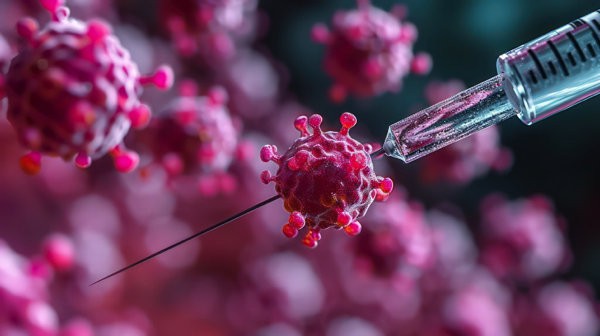“Natural Medicine, Optimal Wellness” offers a comprehensive guide to holistic health
07/25/2025 / By Kevin Hughes

- “Natural Medicine, Optimal Wellness” advocates a diet centered on unprocessed, nutrient-dense foods (whole grains, fruits, vegetables, legumes, and lean proteins) as the foundation of natural medicine – echoing Hippocrates’ philosophy. Vegetarian diets are noted for reducing risks of chronic diseases.
- Refined sugar, refined grains, trans fats and chemical-laden foods are major culprits linked to health issues like heart disease, immune dysfunction and metabolic disorders. Essential fatty acids (e.g., omega-3s) are highlighted as beneficial.
- Vitamins, minerals, and herbs work best alongside dietary adjustments—especially for food sensitivities. Examples include magnesium for angina, B6/zinc for ADHD, and HCl therapy for rosacea.
- The authors promote natural hormones over synthetics and explore biochemical interventions (e.g., niacin/glutamine for alcoholism, soy isoflavones for hormone balance).
- The book emphasizes long-term wellness through balanced choices, addressing root causes rather than symptoms, and integrating diet, supplements and lifestyle for conditions like diabetes, heart disease and ADHD.
In an era where health-conscious individuals are increasingly seeking alternatives to conventional medicine, “Natural Medicine, Optimal Wellness: The Patient’s Guide to Health and Healing” by Jonathan V. Wright and Alan R. Gaby emerges as a beacon of guidance.
This seminal work, which has transformed the approach to health for many, advocates for a return to the fundamental principles of natural medicine. It emphasizes the profound impact of diet and lifestyle on overall well-being.
At the heart of the book lies the age-old wisdom of Hippocrates: “Let your food be your medicine and let your medicine be your food.” Wright and Gaby argue that the foundation of a robust natural medicine program is a diet rich in whole, unprocessed foods. This philosophy is not just a nostalgic nod to the past but a scientifically-backed approach that suggests the kitchen can indeed be the best pharmacy.
The authors emphasize that while supplements like vitamins, minerals and herbs can be beneficial, they are most effective when combined with a diet free of chemical additives and pesticides. This holistic approach is particularly crucial for individuals with food sensitivities or intolerances, who may find that dietary changes alone can lead to significant improvements in their health.
So, what constitutes an ideal health-promoting diet according to Wright and Gaby? It includes a diverse array of whole grains, fresh fruits and vegetables, nuts, seeds and legumes.
For those who consume animal products, the book suggests moderate amounts of low-fat options like eggs, fish, chicken and beef. Interestingly, the authors highlight that vegetarians often enjoy a lower risk of heart disease, hypertension and other disorders compared to their meat-eating counterparts.
However, the book also delves into the lesser-known beneficial compounds found in whole foods. For instance, soybeans contain isoflavones such as genistein and daidzein, which can help balance estrogen levels and potentially reduce the risk of hormone-dependent cancers.
Wright and Gaby do not shy away from identifying the “bad guys” in mankind’s modern diets. Refined sugar tops the list, with the average American consuming a staggering 41 teaspoons daily. This excessive intake can lead to cardiovascular issues, weakened immune function and a range of symptoms including fatigue, depression and headaches.
The authors also advise against refined grains like white bread and white rice, which lack the nutrients and fiber found in whole grains. These refined carbohydrates can cause the same symptoms as sugar due to their rapid absorption into the bloodstream.
The book provides a nuanced view of fats, warning against trans-fatty acids found in margarine and foods containing partially hydrogenated vegetable oil. These fats can promote heart disease and essential-fatty-acid deficiency. On the other hand, essential fatty acids like omega-3 and omega-6 found in flaxseed oil and fish oil are crucial for health and can help with conditions ranging from heart disease to psoriasis.
Dairy products, while a good source of protein and calcium, are scrutinized for their potential health risks. The authors suggest that milk consumption may increase the risk of Type 1 diabetes and heart disease, and many people are lactose intolerant or allergic to cow’s milk proteins. They recommend obtaining calcium from alternative sources like dark green vegetables, whole grains, beans and supplements.
The book also offers insights into managing specific health conditions. For example, it explores the treatment of rosacea, suggesting that low stomach acid may play a role and recommending hydrochloric acid therapy along with nutritional supplements.
For angina, the authors highlight the importance of nutrients like magnesium, L-carnitine and coenzyme Q10, advocating for a holistic approach that combines dietary changes, supplements and chelation therapy.
The book also addresses ADHD, recommending the elimination of refined sugar, artificial colorings and allergenic foods. It also advocates for supplements like vitamin B6, magnesium and zinc.
Wright and Gaby tackle controversial topics such as alcoholism, exploring its biochemical component. They suggest nutritional interventions like niacin, glutamine and essential fatty acids to reduce alcohol cravings.
Finally, the book emphasizes the importance of hormone balance, discussing the use of natural hormones in treating various conditions. The authors argue that natural hormones are safer and more effective than their synthetic counterparts.
“Natural Medicine, Optimal Wellness” empowers readers to take control of their health through informed dietary and lifestyle choices. It serves as a reminder that the journey to optimal wellness is a marathon, not a sprint. By embracing the principles outlined in this book, individuals can embark on a path to a healthier, more balanced life.
Watch this video about Jonathan V. Wright and Alan R. Gaby’s book “Natural Medicine, Optimal Wellness: The Patient’s Guide to Health and Healing.”
This video is from the BrightLearn channel on Brighteon.com.
Sources include:
Submit a correction >>
Tagged Under:
Alan R. Gaby, alcoholism, allergenic foods, artificial colorings, calcium, chelation therapy, chemical additives, Coenzyme Q10, dairy products, dietary changes, essential fatty acids, fruits, Glutamine, Herbs, Hippocrates, Jonathan V. Wright, L-carnitine, legumes, Magnesium, minerals, natural medicine, niacin, nuts, omega 3, Omega-6, refined sugar, seeds, supplements, trans fatty acids, vegetables, vitamins, whole grains
This article may contain statements that reflect the opinion of the author





















